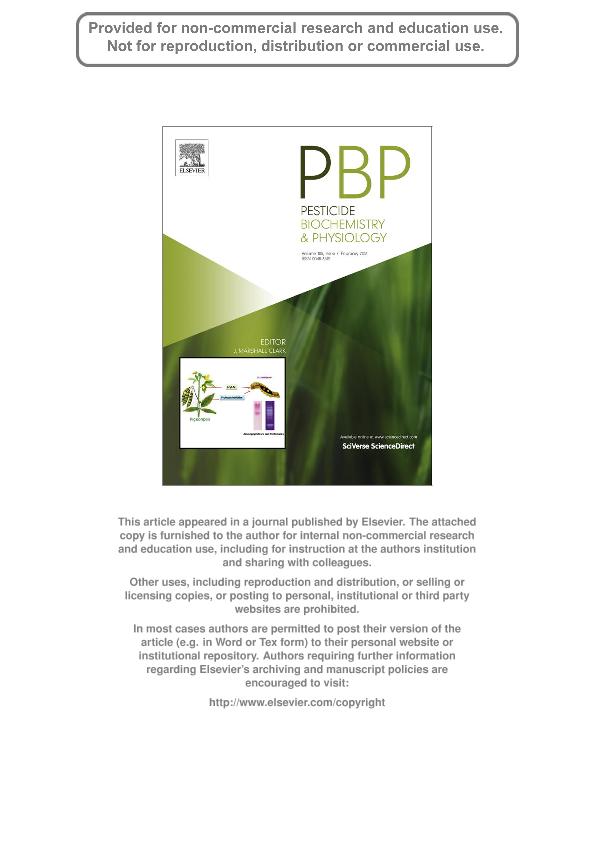Artículo
Induction of micronuclei in broad snouted caiman (Caiman latirostris) hatchlings exposed in vivo to Roundup® (glyphosate) concentrations used in agriculture
López González, Evelyn Cecilia ; Latorre, María Agustina
; Latorre, María Agustina ; Larriera, A.; Siroski, Pablo Ariel
; Larriera, A.; Siroski, Pablo Ariel ; Poletta, Gisela Laura
; Poletta, Gisela Laura
 ; Latorre, María Agustina
; Latorre, María Agustina ; Larriera, A.; Siroski, Pablo Ariel
; Larriera, A.; Siroski, Pablo Ariel ; Poletta, Gisela Laura
; Poletta, Gisela Laura
Fecha de publicación:
01/2013
Editorial:
Elsevier
Revista:
Pesticide Biochemistry And Physiology
ISSN:
0048-3575
Idioma:
Inglés
Tipo de recurso:
Artículo publicado
Clasificación temática:
Resumen
Caiman latirostris is one of the two crocodilian species living in Argentina. As a result of agricultural expansion produced in recent years, some populations are exposed to continuous pesticide discharge due to the proximity of its natural geographic distribution to extensive agricultural areas. The aim of this study was to evaluate genotoxicity and the effects on growth of Roundup® (RU; glyphosate based formulation) on C. latirostris hatchlings, considering concentrations commonly applied in crops and subsequently decay of the compound in water through time, as it might occur in the environment. C. latirostris 20 days old, from three different clutches, were exposed to two RU concentrations in plastic containers, during two months. RU concentration was progressively decreased through time, so experimental groups were: treatment 1: 11mg/l (concentration at the beginning) to 2,5mg/l (concentration at the end of experiment), treatment 2: 21mg/l to 5mg/l; and a control without RU. At the end of exposure period, blood samples were obtained and the micronucleus (MN) test applied in erythrocytes as a marker of genotoxicity. Results indicated a significant increase in the frequency of MN (p <0.05) and a tendency to lower growth in the groups exposed to RU compared to the negative control. These results, together with those reported in previous studies; warn about the effect that C. latirostris wild populations continuously exposed to low concentrations of pesticides might be suffering.
Archivos asociados
Licencia
Identificadores
Colecciones
Articulos(CCT - SANTA FE)
Articulos de CTRO.CIENTIFICO TECNOL.CONICET - SANTA FE
Articulos de CTRO.CIENTIFICO TECNOL.CONICET - SANTA FE
Citación
López González, Evelyn Cecilia; Latorre, María Agustina; Larriera, A.; Siroski, Pablo Ariel; Poletta, Gisela Laura; Induction of micronuclei in broad snouted caiman (Caiman latirostris) hatchlings exposed in vivo to Roundup® (glyphosate) concentrations used in agriculture; Elsevier; Pesticide Biochemistry And Physiology; 105; 2; 1-2013; 131-134
Compartir
Altmétricas



